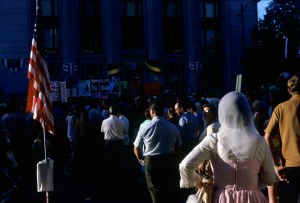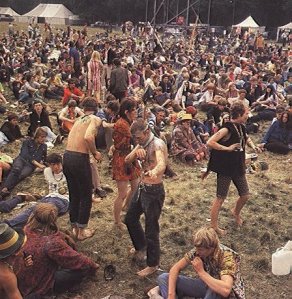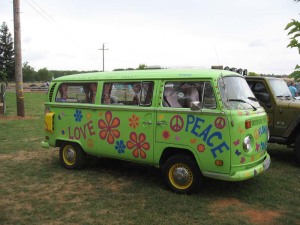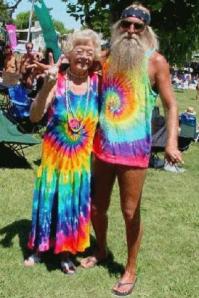I’m a lawyer. In 25 years of law practice, I’ve read a bunch of U.S. Supreme Court opinions, at least 4 or 5 in their entirety. Everyone is abuzz about National Federation of Independent Business v. Sebelius which was decided on June 28, 2012. What is that, you ask? It’s the Obamacare case. I realize that most folks don’t have the benefit of my education and years of law practice to help them understand what happened. As a public service, I’ve decided to address these concerns with this primer on Sebelius and what it means.
WHAT IS OBAMACARE?
It’s a law called the Patient Protection and Affordable Care Act. It’s 2700 pages long. I’ve never read it and won’t. I tried to read The Fountainhead one time. It’s only like 1000 pages long. I just couldn’t do it.
WHAT IS THE SUPREME COURT?
Good question. It’s the only court required by the Constitution. There are no qualifications to be on the Court. You can be foreign-born, any age and have little or no education. You don’t even have to be a lawyer, although I’m pretty sure all the justices (We call them “justices,” not judges) have been lawyers. Geddy Lee, Alex Trebek and Jackie Chan could be on the Court. So could Snookie.
WHAT DOES THE COURT DO?
That’s hard to say, really. I’ve never been there and probably won’t ever be. I know people who have, and it’s pretty intimidating. That said, they only hear cases that they want to hear. You have to petition for a Writ of Certiorari to be heard. It’s hard to pronounce and even harder to do. Don’t even try.
WHO ARE THE JUSTICES?
Well, there are 9 of them, although the Constitution sets no limit. If I were in charge, I’d change it to like 27 to make it a free-for-all. To the best of my knowledge, these are the justices:
- John Roberts: He’s the Chief Justice. Smart dude. Good writer. He’s now a scurrilous lackey for the President.
- Anthony Kennedy: He’s the wildcard. Hard to say if he’s liberal or conservative. I had lunch with him one time. Okay, maybe not with him, but really close to him. He seemed like a fine fellow.
- Antonin Scalia: Another really smart guy. Extreme ultra-conservative. Excellent writer, but a little testy. Kinda like if your grandfather was a genius and started writing legal opinions.
- Clarence Thomas: Come on, you know him. Gets a lot of flak for not asking questions during oral arguments. As a lawyer, I like that. Don’t interrupt my brilliant presentation with your inane questions.
- Ruth Bader Ginsburg: The tiniest Justice. Almost elfin. Wears fabulous neck wear with her robe.
- Stephen Breyer: Liberal dude. His opinions are whiny. I don’t like that.
- Alito or Alioto or something like that: Sorry. Couldn’t pick him out of a police lineup.
- Sonia (maybe?) Sotomayor: Again, don’t much about her.
- Elena Kagan: Really liberal. That’s about it. Looks like a heavy Rachel Maddow.
They all went to really good law schools. So, if you went to a state university like I did you got no shot. Sorry. Besides, I wouldn’t be any good. My penchant for foul language would disrupt many an oral argument. Plus, I’m not that strong a reader.
WHAT THE HELL HAPPENED?
In a 5-4 vote, the Court upheld most of Obamacare. Chief Justice Roberts wrote the opinion. He’s supposed to be a conservative but now is viewed as a wild-eyed liberal.
As an aside, I know that “Obamacare” started as a derisive tag for this act, but it’s really catchy. It has a certain flow to it.
WHY DID THEY DO THAT? ARE THEY CRAZY?
Honestly, I haven’t read the whole opinion. Actually, there are multiple opinions. All Supreme Court rulings have a syllabus at the beginning that summarizes the ruling. That’s usually good enough for me. Eventually the opinion will be published and then will have “head-notes” included. These are like bullet points at the beginning that tell you the highlights. Sort of like Cliff Notes. For most lawyers, head-notes will suffice unless you’re some kind of egghead. Or a law professor, but they aren’t really lawyers anyway.
The opinion has something to do with the Commerce Clause of the Constitution which gives the Federal Government the power “To regulate Commerce with foreign Nations, and among the several States, and with the Indian tribes.” You’ll have to trust me on this one, but that little clause gives the government the power of Thor. BUT, it doesn’t give it the power to make you buy health insurance. Now, if you belong to an Indian tribe, you may be SOL, but I don’t know for sure. Chances are that they can force the Indians to do anything.
What they CAN do is tax you for NOT buying health insurance. So, Obamacare can tax your ass for not buying insurance. That’s it. Learn to live with it. Oddly enough, the Indians are exempted from this part. Go figure.
I don’t know if they’re crazy (the Supreme Court, not the Indians). They might be. Justice Ginsburg looks a little crazy. Thomas is quiet which is certainly a sign of craziness, but he was against the ruling. If he’s crazy, it’s for other reasons.
Justice Roberts wrote the bulk of the Court’s opinion. He doesn’t seem crazy to me, but he could be. Sometimes people who don’t appear to be crazy are really super-crazy. He could be the Ted Bundy of the Court. I’m not suggesting that he’s a serial killer nor am I suggesting he’s not. Draw your own conclusions.
HOW CAN WE GET RID OF ROBERTS?
We can’t. He’s appointed for life and would have to be impeached. It won’t ever happen. You have more chance of making out with Salma Hayek. Or Bradley Cooper. Or both.
DO I GET FREE HEALTH INSURANCE NOW?
No, unless you now qualify for Medicaid, which may be expanded if your state wants to expand Medicaid, which it doesn’t have to, by the way. If you qualify for Medicaid, your life might suck so much that you don’t really care about staying healthy anyway.
WHAT’S ALL THIS STUFF ABOUT TAXES?
Basically, the government can tax you now for not having health insurance (unless you’re an Indian). Some now fear that they will be taxed for not eating broccoli, although I’m not sure that’s in the Act. It could well be, of course. Justice Roberts reaffirmed what we already know: The government can tax you into the poorhouse. I didn’t need him to tell me that.
WHY AM I BEING TAXED?
Because you can afford health insurance but won’t buy it. What kind of idiot wouldn’t have health insurance if he could afford it? It’s the Idiot Tax. If you can’t afford the tax, you go to a gulag full of sick people. It will really suck. Okay, I made up that part, but they could tax you for not going to the gulag. THAT would be perfectly legally.
BUT DON’T TAXES SUCK?
Of course. Taxes are bad. Bad, bad, bad. This tax is really bad, because it brands YOU as the problem. You not only get taxed, but you’re also identified as a selfish jackass.
WHAT DID THEY SAY ABOUT THE DEATH PANELS?
Nothing as far as I know. But I’m sure there’s something about them in the 2700 pages of the Act. Like our members of Congress, I have no intention of ever reading the whole act. Here’s how it probably will work: You’ll contract some deadly disease like Ebola virus. At this point, the only decent thing to do is go ahead and die. If you refuse to die, the Death Panel will tax you for staying alive until you do the patriotic thing and give up. If that doesn’t work, they’ll invoke the Patriot Act on you and send Navy Seal Team 6 to your house. And that will be that.
CAN I SERVE ON A DEATH PANEL?
I think so. I think it’s like the Supreme Court. There are no real qualifications. Well, except you have to be alive, of course. Maybe.
SO, WILL GETTING SICK BE A GOOD THING NOW?
Possibly, but it depends on how sick you are. If you’re kinda sick, it’s okay. If you’re extremely sick, that’s bad (see the comments on the Death Panels above). Of course, it’s always bad to be extremely sick, but you might have health insurance now, unless you’re an Indian.
WON’T MORE PEOPLE WANT TO BE SICK NOW?
Of course. Since everyone will be insured, there will be less incentive to stay healthy.
WHAT IF I’M A DEADBEAT LIVING IN MY PARENTS’ BASEMENT?
There is some good news. The so-called Slacker Mandate allows you to stay on your parents’ health insurance until age 26. Make yourself comfortable in the basement and get as sick as you want.
WHAT IF I’M UNINSURABLE?
Good news: They’ll have to insure you. Bad news: I was uninsurable for a while and bought my coverage through a high risk pool. Good luck affording that.
AM I FORCED TO USE CONTRACEPTIVES?
Only if you are insured under the Slacker Mandate, in which case you must use them even if you are not in a relationship. Plus, you’ll be forced to use them with random uninsured people chosen by the government.
HOW DOES THIS LOWER THE COST OF HEALTH CARE?
It’s simple, really. Since more people will be insured, the risk will be spread around which will offset the increased cost of insuring pre-existing conditions and more people. The insurance companies will pass this savings on to YOU, rather than just pocketing the increased profits.
Oh, hell, I just read that somewhere. I have no idea how it would decrease costs. My health insurance premiums go up every year. Why would that change? If you know, tell me.
WE HATE OBAMACARE. DOESN’T THAT COUNT FOR SOMETHING?
Sorta. Sadly, the Constitution doesn’t have a Popularity Clause allowing the Court to throw out unpopular laws. We can, however, vote. Now, don’t get confused. You can’t vote against Justice Roberts. Remember, he has a job for life.
HOW ABOUT AMENDING THE CONSTITUTION?
You’d think that would work, but it won’t. The last amendment took over 200 years to get approved. So, you’ll long be dead by then unless Obamacare results in us all living to be 300 years old. If that happens, we’ll probably be okay with it.
DO WE HAVE TO KEEP CALLING IT OBAMACARE?
Of course not. We’re Americans. You can use its catchy acronym: PPACA. Here are some other alternatives: Barackacare; Robertscare; Obamalamadingdongcare; Osamacare; ObamaScare; Yomamacare; YoYoMaCare; and Whocares.
WHAT DOES IT ALL MEAN?
It’s either the greatest opinion in the history of jurisprudence or the end of the republic. The Court struck a blow for better and more affordable healthcare or eviscerated the Constitution. We’re on the road to Communism or joining the 21st Century. It is the single greatest moment ever (Barack Obama’s view only) or the last puzzle piece needed to establish a worldwide caliphate (Glenn Beck only). I have no idea.
BY GOD, WHAT IF I JUST LEAVE THE COUNTRY?
That’s one possible solution–or you can join an Indian tribe, if that’s allowed. Here’s the rub: Almost every other country has some form of socialized medicine, plus they suck in all kinds of others way. For example, they won’t have football. Also, they may not speak English.
Greece has really good health care, but everything else about Greece sucks. France, too, but, hey, it’s France. What are you, a Commie? I’m not sure what you should do. People in Monaco live to be around 90. They must be good.
Our government already provides about 65% of all the health insurance anyway. Let’s just stay here and see what happens. Plus, we have football. Don’t forget that.
SO, YOU’RE SAYING THERE’S NO HOPE?
Yes, that’s what I’m saying. At least there’s no hope of going back to Ron Paul’s childhood where doctors made house calls and you paid your surgical bills with chickens or pelts.
While everyone was chewing off their arms over Obamacare, the Supreme Court quietly delivered its opinion in United States v. Alvarez. That involved a law which makes it illegal to lie about having military medals. In other words, you can’t buy a Purple Heart off eBay and go around pretending to be a war hero. The law is unconstitutional, because we have the right to lie. Outraged, are you? Don’t be. If the government can criminalize lying, it can also decide which lies to criminalize and, ultimately, what is true and what isn’t. That’s a blow for freedom. All is not lost. A good thing happened on the same day as a bad thing, assuming you think a bad thing happened at all. That’s exactly what they want you to think.
Now, those of us willing to plumb deeper into the depravity of the Supreme Court note the “coincidence” of Alvarez holding that lying can’t be a crime on the same day they found that Obamacare is a tax. The President, of course, said it wasn’t a tax, which means he was lying. But lying isn’t a crime now, is it? Hmmmm. Well played, Mr. President and your lap-dog, Chief Justice Roberts.
WHAT NOW?
Most–if not all–of what the government does is perfectly fine under the Constitution. That doesn’t mean I like it, and it certainly doesn’t mean I support it. In fact, most of what the government does is imbecilic. I’m not all that worked up about Obamacare, but I have a bunch of other stuff stuck in my craw. I’m not counting on John Roberts and his cabal of Fellow Travelers to unstick my craw, either. I’m voting. You should, too.
One word of caution. The call now is for “Repeal and Replace!” Another gaggle of Congressional idiots will draft the replacement. Oh well, that will just give us another crisis to get hair-lipped over.
©thetrivialtroll.wordpress.com 2012


















